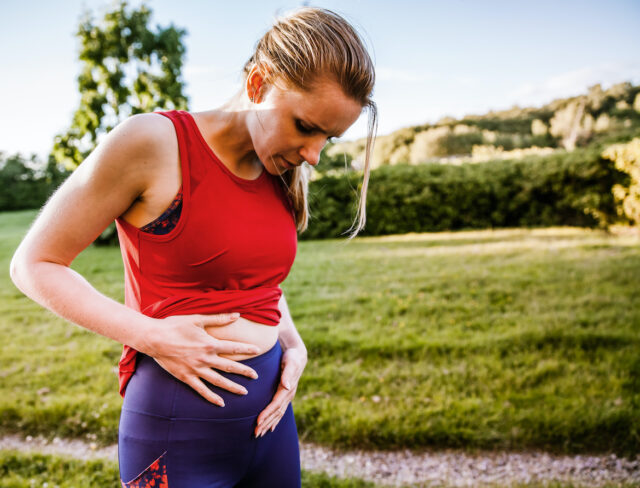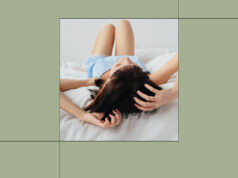Many Redditors have, that’s for sure. It’s uncomfortable, it’s awkward, it’s annoying—what’s the deal? Is there a way to make it stop? A few experts share their explanations and advice.
The reason behind the itch
Various causes could be at play, some of which are more or less serious. Those possibilities include:
Experts In This Article
- Melanie Bone, MD, Melanie Bone, MD, is a board-certified OB-GYN and member of the medical board for Daye.
- Shirin Lakhani, MBBS, Shirin Lakhani, MBBS, is a general physician and intimate health specialist.
- Taniqua Miller, MD, Taniqua Miller, MD, FACOG, MSCP, is the founder of TaniquaMD and an Evernow clinician.
Changes in hormones and pH levels
These fluctuations are normal during your menstrual cycle. “Both could create a feeling of itching, burning, or discomfort before and during your period,” says Melanie Bone, MD, a board-certified OB-GYN and member of the medical board for Daye, a health company committed to raising the standards in gynecological health.
She explains that changes to your body’s hormone and/or pH levels can also affect moisture levels, “which can be responsible for itching as a result of increased friction,” says Dr. Bone.
A possible infection
“Vaginal itching may be indicative of the changes that occur around the menstrual cycle,” says Taniqua Miller, MD, FACOG, MSCP, the founder of TaniquaMD and an Evernow clinician. “But more specifically, you may experience symptoms of what’s called ‘vaginitis’ related to two common culprits: yeast infections and bacterial vaginosis.”
Leading up to your period, she explains, an overgrowth of yeast can be present in the vagina, which can cause vaginal itch before or during your period. “This can occur on a cyclic basis, called ‘cyclical vulvovaginitis,’” says Dr. Miller. Signs of a yeast infection include itching, burning, redness, soreness, changes in discharge, and more.
Similarly, with bacterial vaginosis, hormonal changes that happen during your cycle can cause bacteria to overgrow, Dr. Miller says, causing vaginal and vulvar irritation. Bacterial vaginosis has similar symptoms to a yeast infection: fishy-smelling discharge, a burning sensation when peeing, itching, pain, and white or gray discharge, to start.
On the note of infections, Dr. Miller also suggests being mindful of the possibility of STIs. “If there is a sudden change in vulvar and vaginal itching, it always pays to check for sexually transmitted infections,” she says.
Some sanitation products
If the itchiness arises more during your period, it could be due to the particular sanitation product. “The use of certain products for periods, such as sanitary pads, can also cause itchiness,” says Shirin Lakhani, MBBS, a general physician and intimate health specialist. “Tampons can also cause itching as they can dry out your vagina.”
To avoid that discomfort, she recommends using menstrual cups or washable underwear. If you still want to use tampons, however, she encourages changing them frequently and not using the highly absorbent ones.
Additionally, keep your fragrant soaps for other parts of your body. “Using scented products will affect the pH level of your vagina, and these could irritate the area and lead to itchiness,” Dr. Lakhani says. “You only need to clean your vulva with warm water when you bathe, and you do not need to clean your vagina, which cleans itself naturally.”
When to see a doctor
If your symptoms are worrisome, long-lasting, or uncomfortable, hitting up your doctor is probably your best bet. More specifically, the doctors I spoke with list the following signs as reasons to book an appointment:
- Discharge that has a green or yellow tint, or looks like cottage cheese (or otherwise looks different than usual)
- Very smelly discharge
- Swelling or redness in your vulva
- Discomfort that doesn’t ease after a few days
- Severe rashes
- Painful urination
- Painful sex
- Flu-like symptoms alongside the discomfort and itching
As tempting as it may feel to just turn to Google with your symptoms, seeing a doctor ensures you get the right diagnosis and treatment. “If you assume that it is yeast but have never had a confirmed diagnosis of yeast, you could potentially delay a diagnosis of an infection that requires a different kind of treatment,” Dr. Miller says.
Ultimately, don’t downplay what you’re experiencing. “You should always treat any vaginal symptoms you may be experiencing as serious,” Dr. Bone says. “This is because the health of your vulva and vagina is essential for your overall reproductive and gynecological health. Please don’t underestimate the importance of vulval health.”
4 ways to help prevent vaginal itch before or during your period
Even better than addressing the itchiness reactively is thinking about proactive measures you can take. Read on for several to consider.
Up your probiotics and water intake
“I recommend eating a diet rich in probiotics, such as yogurt and sauerkraut, to aid bacteria in the body,” Dr. Lakhani says.
She also advises drinking enough water, saying it can help with premenstrual irritation, eliminating toxins by making you pee more often, and easing dryness.
Opt for breathable underwear
First, it may (unfortunately) be best to skip out on the sexy lingerie. “Stay away from tight, synthetic underwear, which can create moisture,” Dr. Lakhani says. “Cotton underwear is far better and will allow your vagina to breathe.” (And hey, cotton undies can be cute, too!)
Changing your underwear regularly is important, as well. “Stay dry by changing your underwear after exercise, or your bathing suit after swimming on the beach,” Dr. Bone says. “Excess moisture build up also increases the growth of bacteria and can lead to vaginal infections.”
When it’s time to wash your underwear, you may need to switch up your routine. “Do not wash your underwear with harsh soaps or fabric softeners,” Dr. Bone adds, advising the use of baby laundry detergent instead.
Use lube
Dr. Lakhani says sex is best avoided as it can worsen symptoms of vaginal itch before or after your period. But as a preventative measure, using a pH-balanced lube can help reduce the chances or internal itchiness or chafing caused from vaginal dryness.
Other potentially helpful products
Keep getting yeast infections? “Sometimes a home treatment with boric acid vaginal suppositories could do the trick,” Dr. Miller says. “However, I do recommend discussing with a clinician before trying to make sure this is, in fact, the right choice for you.”
Additionally, if you can’t change your sanitation product often (to avoid moisture on the skin that can be irritating), she advises using a moisture barrier outside the vagina. “Something as simple as petroleum jelly, zinc oxide, or the brand Aquaphor can serve to protect the skin from any irritations on the pads or from period products,” she says.
At the end of the day, while addressing the side effects of menstruation can be annoying, it’s an itch that can be (effectively) scratched with steps like these.










